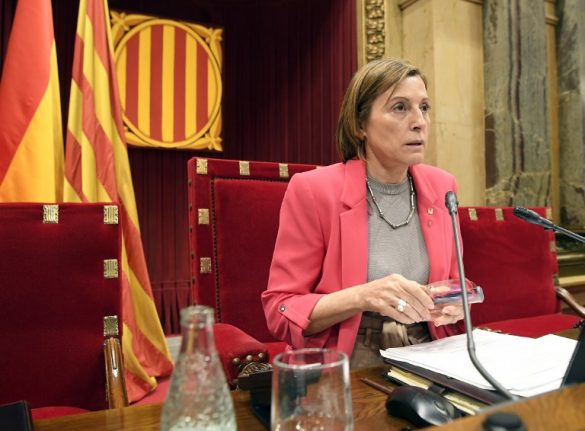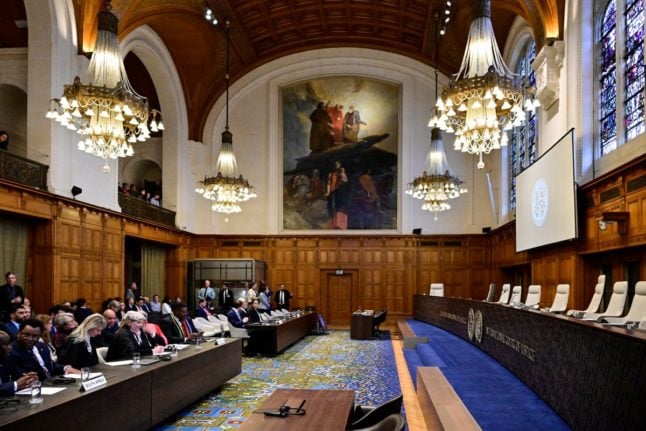Speaking to reporters in Barcelona, staunchly pro-independence Carme Forcadell said she would not stay in the post despite having been offered to do so after regional elections on December 21st that saw separatist parties retain their absolute parliamentary majority.
“I think this new political moment requires a new person who is, above all else, free of legal proceedings,” she said.
Forcadell was a key figure among Catalan leaders who attempted to break away from Spain, a process that culminated with the regional parliament declaring unilateral independence on October 27th.
But this was short-lived as Prime Minister Mariano Rajoy imposed direct rule on the semi-autonomous region, sacked its government, dissolved its parliament and called snap elections.
Forcadell's decision to step down as parliamentary speaker — she will continue on as lawmaker — comes just two days after one of the main candidates to replace her announced he was leaving politics.
Carles Mundo, the former regional justice minister, is also being probed for sedition and rebellion, which could fetch up to 30 years in jail.
That same day, Artur Mas, who as Catalan president from 2010 to 2016 was the instigator of the independence drive, announced he was stepping down as president of his PDeCAT party.

Artur Mas announced his resignation as president of the PdeCat party. Photo: AFP
He said he had taken the decision to make way for new people and to face the judicial cases against him.
Separatist parties have an absolute majority of 70 seats out of 135, but eight of their elected officials are either in self-imposed exile in Belgium or in jail in Spain.
They want to elect Carles Puigdemont as president again, but in theory he would need to be present at the official parliamentary session where the vote takes place.
He is in Belgium, however, and will be arrested if he comes back to Spain on charges of rebellion and sedition.
Separatist parties insist he be allowed to appear by videolink or write a speech and have someone else read it in the session, but the opposition insists that is illegal.
Ultimately, the parliamentary speaker and his or her deputies have the power to decide.



 Please whitelist us to continue reading.
Please whitelist us to continue reading.